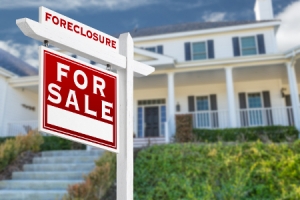Should lenders be required to go to court in order to foreclose on a home in NH, instead of leaving it to homeowners to initiate a court action?

HB 1682 would require banks to go to court in order to foreclose on a home, turning New Hampshire into what is called a “judicial foreclosure state”. The bill is being considered by the the Legislature this year.
Current foreclosure law in NH
Under current law, a lender must carry out two actions before they can foreclose on and auction a home.
- The auction must be advertised in a local or state-wide newspaper for three weeks.
- A certified letter must be sent to the homeowner detailing the intended auction and giving information on their options. (However, state law doesn’t require that letter to be successfully delivered and signed for before a foreclosure can proceed—if it is returned unsigned, the bank can still move forward.)
This leaves the onus on homeowners to take banks to court to fight a foreclosure, if they think they have grounds for why it should not go forward.
Change would offer protections for homeowners
HB 1682 would require banks to go to court to prove they have the right to foreclose on and sell a home, instead of leaving it up to homeowners to take action.
Supporters of the bill argue that by requiring the bank to prove its case in court before a foreclosure can go forward, the fate of the property is put more in the homeowner’s hands.
“Having a court in the middle balancing things out makes sure that people are treated fairly.”
- HB 1682 sponsor Rep. Kermit Williams (D-Wilton)
Proponents also point out that right now, those renting property have stronger legal protections than homeowners facing foreclosure. HB 1682 would bring the rules for homeowners being “evicted” more into line with those that safeguard tenants.
More expense means higher costs to consumers
Opponents say requiring mortgage-holders to go to court in order to foreclose would only drag out the process and create an expense that a lender’s other customers would ultimately have to pay for.
“When it becomes a more expensive process for financial institutions, they don’t absorb those costs. They pass them onto consumers. So all consumers in states with judicial foreclosure tend to pay the price for judicial foreclosure.”
- Jerry Little, Commissioner of the New Hampshire Banking Department
Other opponents point out that homeowners already have the right to appeal their foreclosure in court, if they choose.
What do you think? Should homeowners have greater protection against foreclosure proceedings? Let us know in the comments section below.











Comments
Login or register to post comments